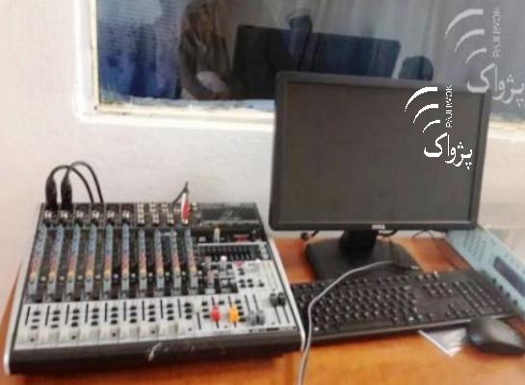Zarghona Hassan, the owner of Radio Shaesta – an Afghan radio station dedicated to women’s issues, is back on air six months after fleeing a Taliban assault on her city.
Radio Shaesta – Pashto for ‘beauty’ – broadcasts from Kunduz and reached hundreds of thousands of listeners across northern Afghanistan until September last year when insurgents took over the city, forcing the staff of the station to go into hiding.
The Taliban looted the station and burned it to the ground along with Radio Kaihan – another station run by Haasan which serves youth.
In Afghanistan, literacy rate is less than 40 percent and a large population lives in remote communities.
In conservative areas, women are often denied basic services like healthcare, employment and legal services.
Radio is a powerful and cost-effective medium here as 75 percent of Afghan households own a radio compared to 45 percent with a television.
In communities with erratic or no electricity, wind-up radios are popular and widely accessible.
Radio Shaesta’s programming educated women about their legal and political rights as well as address taboo subjects like reproductive health and domestic violence.
Its show ‘Unwanted Traditions’ took a critical look at centuries-old Afghan customs, like the forced marriage of young girls in order to resolve disputes.
Another show, ‘Introducing Elites’ featured interviews with women who have succeeded in politics and activism, and those who have helped other women in their communities.
According to Haasan, the station also encouraged women to exhort their brothers and sons to lay down arms to end the violence in the country.
The equipment damaged by the Taliban at the stations has been replaced by the United Nations Development Program (UNDP) with a $9000 grant, allowing them to go back on air in time for International Women’s Day on March 8.
“Our two stations share the same equipment, so this investment goes a long way,” said Hassan, editor-in-chief of Shaesta. “Over the next few months, we’ll be promoting women’s rights and youth issues throughout the local area.”
Cecilia Ncube, UNDP’s gender project manager, said: “Local radio is a great way to spread important messages about women’s rights where they need to be heard the most.”
UNDP Country Director Douglas Kehsaid they stood behind the people of Kunduz and were proud of being able to help women regain their voice. “Hearing other women’s voices on air can bring hope and encouragement to those who feel trapped at home and are afraid to speak out.”

